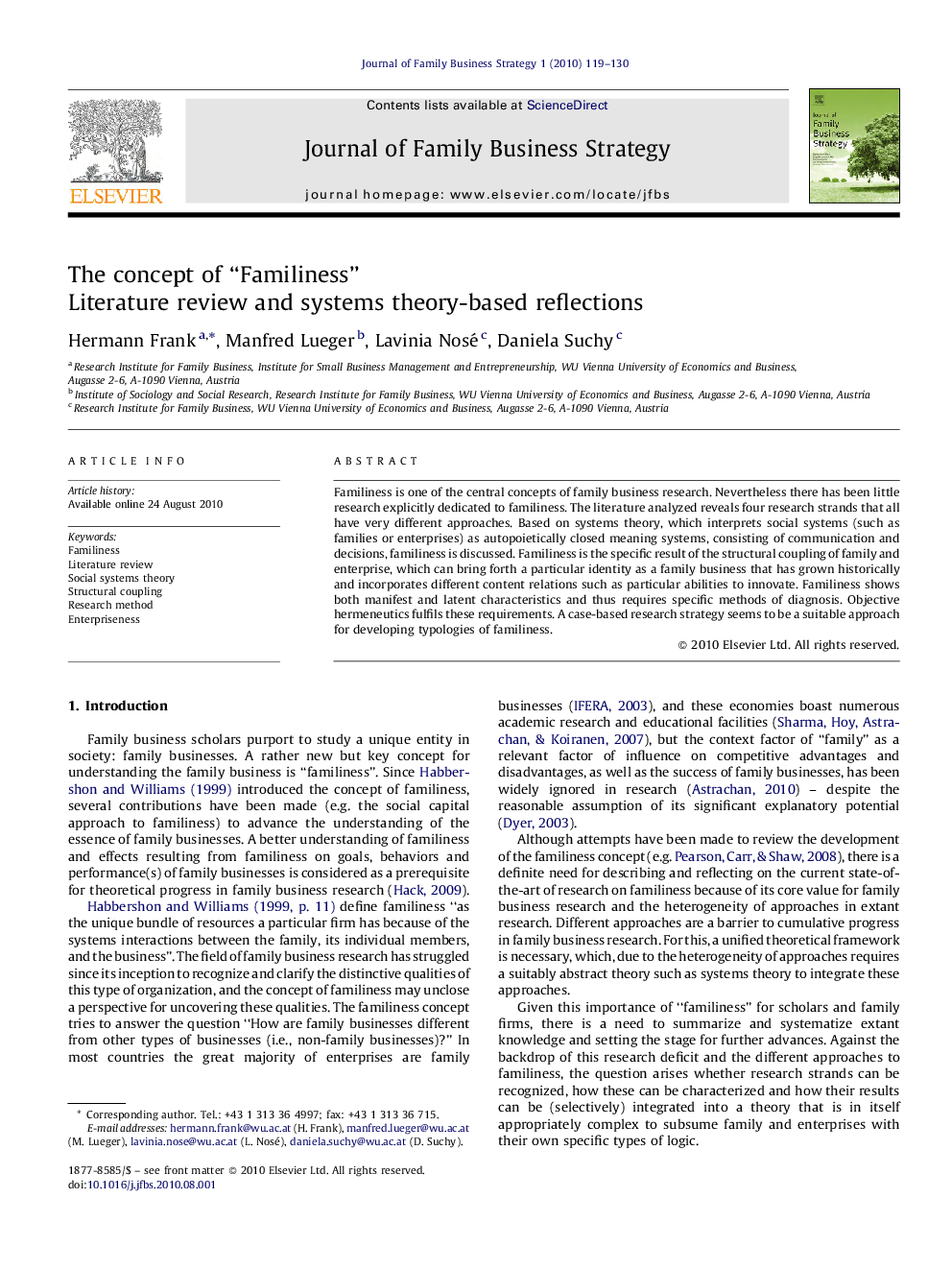| Article ID | Journal | Published Year | Pages | File Type |
|---|---|---|---|---|
| 1020048 | Journal of Family Business Strategy | 2010 | 12 Pages |
Familiness is one of the central concepts of family business research. Nevertheless there has been little research explicitly dedicated to familiness. The literature analyzed reveals four research strands that all have very different approaches. Based on systems theory, which interprets social systems (such as families or enterprises) as autopoietically closed meaning systems, consisting of communication and decisions, familiness is discussed. Familiness is the specific result of the structural coupling of family and enterprise, which can bring forth a particular identity as a family business that has grown historically and incorporates different content relations such as particular abilities to innovate. Familiness shows both manifest and latent characteristics and thus requires specific methods of diagnosis. Objective hermeneutics fulfils these requirements. A case-based research strategy seems to be a suitable approach for developing typologies of familiness.
Research highlights▶ An systematic analysis of literature which deals explicitly with familiness reveals four different research clusters: conceptual articles on familiness, social capital theory of familiness, area specific articles on familiness (e.g. market orientation), and articles employing a measurement approach to familiness. ▶ This heterogeneity may hinder cumulative research progress. ▶ A theory of great reach may be useful for making selective use of extant literature. ▶ It is suggested that systems theory is particularly suitable for researching family businesses. ▶ It assumes that family and enterprise (as two systems) consist of communication and reproduce themselves by means of communication (autopoiesis) and are operationally closed. ▶ The structural coupling of both systems is a prerequisite for familiness. ▶ The coupling can show different degrees of intensity and quality. ▶ If both systems provide their complexity for each other, the family's influence on the enterprise is called familiness and the enterprise's influence on the family is called enterpriseness. ▶ This structural coupling creates the specific identity of a family business. ▶ Objective hermeneutics is proposed as a methodological approach that fulfils the requirements for researching familiness.
